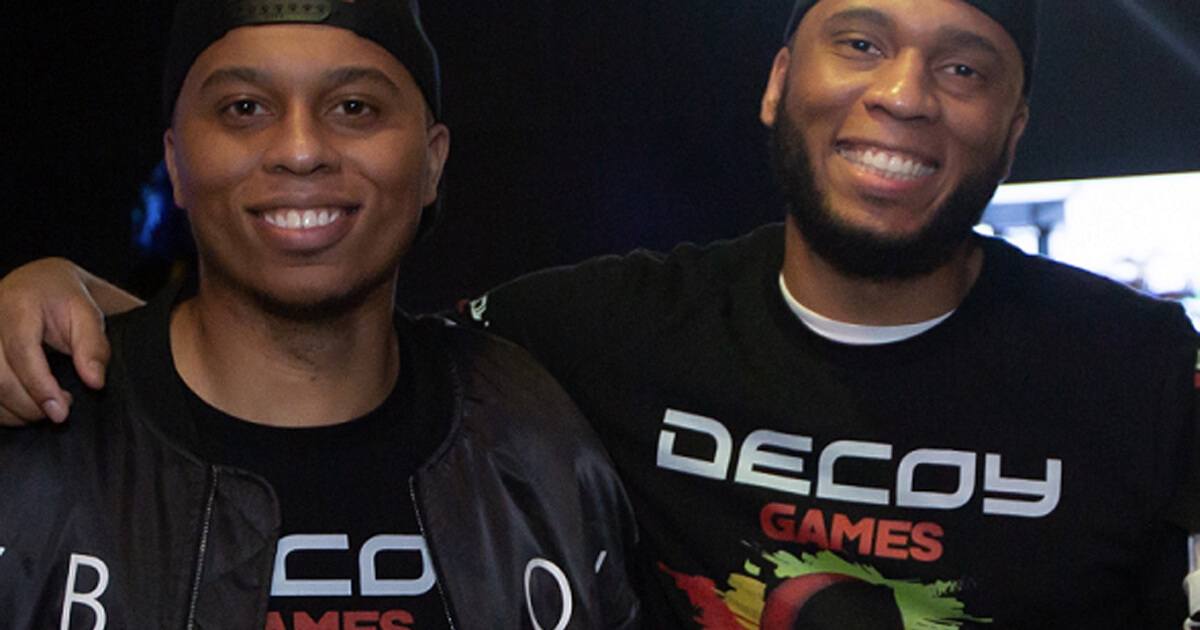Last summer, after nine years of testing prototypes, Khalil Abdullah and his brother Ahmed released Swimsanity!, the first multiplayer game created by the brothers. The game was made available on several game console platforms, including Nintendo Switch, PS4 and XBox One. Since the game was released, the company has over 900,000 downloads in sales from a self-funded budget.
Through the entire period of Swimsanity!, we probably went to about 30 to 50 conventions, Khalil Abdullah recalled. Our goal was always to get published on consoles, but it’s more difficult to do that because there are more hurdles to jump through and business relationships to build. The road to this moment wasn’t easy. The brothers nearly lost track of the countless events they attended to promote and pitch the game. The origins of the game are rooted in a University of Massachusetts class Khalil took while completing his computer science degree.
Early video games were created by computer scientists in the 1950’s for free before being commercialized in the early 2000s as independent developers started achieving success amongst avid gaming consumers. With more independent, diverse developers coming into the field, video games now span across genres of creative storytelling. Thus, big studios are faced with fierce competition from creative independent developers. It has sent them clamoring to buyout smaller studios with fresh ideas. Publishers have been on an acquisition blitz, acquiring 76 smaller studios in the last five years.
Some studios have been a source of funding for bootstrapped indie game developers to finance production costs. In return, both entities split revenue after the game hits the market. These types of partnerships do run the risk of missing sales goals, which can leave indie studios hurting financially. However, deals can also benefit indie developers by leveraging the publisher’s brand recognition to reach a wider audience, all the while operating independently. But although the Abdullah brothers wear many hats: developers, games designers and marketers; their top priority is to continue establishing relationships with video game publishers. We want to increase the overhead for our next project because we want to scale so we are exploring getting a publisher that can help us with marketing, Ahmed Abdullah told The Plug.
Digital distribution of games on PC and mobile has sparked a renaissance in the industry. Video game development continues to skew online, with 95 percent of games being created for PC and mobile. But the relative ease of self-publishing through apps and digital gaming portals such as Steam and Twitch has brought a proliferation of aspiring gamers into the fray, making it more feasible for indie games to go mainstream. Black game developers are emerging as a growing part of the independent digital and home gaming community, yet they still make up a slim percentage of the gaming industry overall. Globally, only 2 percent of Black game developers are actively working in the industry, compared to 69 percent of white game developers.
According to a survey from last year’s Games Developers Conferences, nearly 30 percent of 4,000 respondents said that their company put no effort at all into diversity and hiring initiatives. The game developer population remains largely white, and male, but that make-up isn’t reflective of video game consumers. Studies over the years have found that African Americans and Hispanic Americans are the most avid video game players. An even more staggering number is more than 80 percent of African American teenagers play video games, according to Pew Research Center.
You won’t find a number that high for any other demographic, Ahmed Abudullah said. Games like NBA2K and Madden NFL [are] two of the top selling games every year, and we know that it’s being pushed by African American culture. The video game industry has thrived immensely during the COVID-19 pandemic. Lockdowns forced people inside and towards video games. The industry is now bigger than the movie and North American sports industries combined, and reached into the billions of dollars in revenue milestone for the first time ever, according to an IDC report.
After raking in $180 billion in sales in 2020, a 20 percent increase from last year, that momentum is expected to remain steady with the release of next-generation game consoles from Sony and Microsoft. Gordon Bellamy, a professor at the University of Southern California and veteran video game executive, was the mastermind behind the regime change for the popular football game Madden NFL early on in his career. Up until 1995, the game produced by Electronic Arts, better known as EA Sports, featured all players with white skin tones.
As one of the lead designers, Bellamy decided to customize and create players with darker-skinned tones. His advocacy has played a pivotal role in raising awareness about the lack of representation of underrepresented groups in the gaming industry, in addition to offering resources to inform minority game developers about ownership and distribution of content. Marginalized populations are building a history of digital ownership and it’s happening now, Bellamy told The Plug. I really find purpose in helping people get from point A to point B who don’t know-how. Enabling people to have ownership in what they do is such a critical path to changing the decisions that will be made, and creating systemic change. The wave of indie game studios has drawn the attention of companies to provide educational opportunities and lend financial support through unique partnerships. In conjunction with the Congressional Black Caucus Foundation (CBCF), The Entertainment Software Association (ESA) announced a 12-month development program for early-career professionals.
Partnering with the CBCF on this new STEAM public policy fellowship provides an essential learning opportunity as technological innovations, including video games, grow ever more important in our everyday lives, ESA President and CEO Stanley Pierre-Louis said in a statement. Niantic Inc., the company that created Pok√©mon Go, announced its Black Developer’s Initiative last month. The program will provide sponsorship and mentorship opportunities to Black game developers and augmented reality (AR) developers. The $7 million fund will go towards helping developers build prototypes. The goal of this initiative is to bring these developer’s ideas to fruition, Trinidad Hermida, Head of Diversity and Inclusion at Niantic Inc., told The Plug. We know that AR is a niche market, but there are a lot of Black developers in this market. Venture capital appetite for the gaming industry has evolved over the years. The rapid growth in the sector has attracted a flurry of new companies intently focused on investing in the sector. According to GameOne, an industry advisory firm, there are 15 venture capital firms that specialize in the gaming industry, all of which were formed in the last decade.
We have taken the time to do the due diligence to see how we could create an initiative that empowers Black creators, said Hermida. It’s very hard for Black creators and developers to get that venture capital visibility, so our goal is to build more equitable opportunities for funding and having a buddy system to walk them through every step to be successful.

Jessica Murrey was the first recipient of the Black Developer’s Initiative. Based in Medford, Oregon, Murrey’s passion for peacebuilding and conflict resolution led her to co-creating a story-centric game to educate young adults about racism and social impact.
Our deadline for the prototype is July 31st so people can see it because it’s very genre-bending, Murrey co-founder and CEO of W!CKED SAiNTS Studio, told The Plug. It’s gotten so much bigger than our original idea and we’ve been able to gather a team over the years who really believed in the vision. Women are increasingly climbing the leadership board of game developers and gaming influencers. Roughly 41 percent of gamers are women 30 percent of whom are between the ages of 18 and 35.
During the early stages of Murrey’s project, she and her business partner received a verbal commitment from an investor before they suddenly withdrew the offer. They were going to fund us, contingent on if we could raise other funds. We raised $100,000 from friends and family and planned to leverage that, but the investor ended up dropping us because they weren’t sure that I could pull it off, she said. It’s difficult in the innovation space because it’s all about failing quickly and learning from those failures. But, if you’re a person of color, anytime you fail, that can be attributed to your capability and not the process.
As the gaming industry paradigm continues to shift toward more exposure and funding avenues for independent game developers, equal opportunity across the board will be critical to leveling the playing field, literally. There are viable paths forward to get funding and still be able to keep equity and ownership of your company, Ahmed Abdullah said. We feel that we’ve done enough to establish ourselves to move forward in a position of leadership and as African Americans, we want to establish that foundation so that we can be a building block.








